Chris Casamassa from Red Dragon Karate and a.k.a. Scorpion from the action film Mortal Kombat speaks about his passion for business.
- Chris Casamassa's life as an author, actor, business consultant, entrepreneur and martial arts school owner
- The biggest lesson that martial arts has taught Chris
- The importance of establishing a strong team of instructors and staffs
- Why you need to invest in leadership programs
- How to turn satisfied customers into happy customers
- And more
*Need help growing your martial arts school? Learn More Here.
TRANSCRIPTION
Well, there's a couple of things. The biggest thing and my favorite saying is, everybody wants the results; nobody wants the process. Right? Everybody wants to be a black belt, but not everybody is willing to put in the work to become a black belt. Everybody says they want to be an instructor, a manager, an owner; but maybe they're not willing to put in the work, right? When they watch me do what I do, they see the glamour moment. They see me standing out there, running the class, rocking it – everything's firing on all cylinders. They don't understand sometimes how much work, effort and dedication I put into my craft to be able to do what it is that I do.
GEORGE: Hey, this is George Fourie and welcome to another Martial Arts Media Business podcast. Today, I'm joined with… so this is going to be a long list of credentials, so I'm going to have to cut this down. So I'm with Chris Casamassa, so author, actor, business consultant, school owner – what am I leaving out there Chris?
CHRIS: Serial entrepreneur.
GEORGE: Serial entrepreneur.
CHRIS: Yeah.
GEORGE: Alright, awesome. Well, welcome to the show. So I'm going to be speaking with Chris at The Main Event in San Diego, depending on when you're watching and listening to this, that'll be the 26th to 28th of April. And today we’re just going to have a chat. Chris has obviously got a wealth of knowledge, so this conversation might be part 1 and 2. We’ll see how we go. All right Chris, welcome I guess, for people that might not have heard of you, who is Chris Casamassa?

CHRIS: Chris Casamassa is, I am the son of the Grandmaster of Red Dragon Karate. We have 12 locations in Southern California, we've been in the business since 1965, so this is our 53rd year in business. I guess that when my father started the company, we were classified as a mixed martial arts style because my dad didn't like one martial arts style; he loved them all. He actually holds black belts in ten different styles of martial arts, so in the 1960s, he did something that really was unheard of and he combined styles of martial arts. So he's one of the originators of the mixed martial arts, who everybody who has a mixed martial arts school – you're welcome!
He did that a long, long time ago and he is an awesome, awesome, amazing guy. A ton of great stories about how people used to come and challenge him because you weren't allowed to do those things back in the day, but he was doing it before it was cool. So that's kind of where I grew up. I started martial arts training when I was 4 years old and I've been in it my entire life. And really just fell in love with it at a very young age.
GEORGE: Alright, so growing up in martial arts the way you did, what do you feel – and I spoke about this with Zulfi Ahmed, the conscious competence and unconscious incompetence and so forth. And obviously, he's got a world of knowledge, as well as yourself, of experience that's become such a part of you, that it might be hard to sort of define into one thing. But what do you feel has been the biggest learning for you? Growing up with your dad and within the martial arts industry the way you have?
CHRIS: The biggest learning for me? Do you mean what's the biggest benefit I've personally gotten out of it?
GEORGE: Yes.
CHRIS: Ok. That would be two things: one, the ability to believe in yourself, that you can and to never give up on your dreams and hopes and goals. Probably those are the two biggest things that my father instilled in me that the arts have taught me. Really, that nothing is impossible as long as you are focused and you take the steps of progression that you need to get there, you just give it a 100% effort and never give up.
GEORGE: Alright, so you started martial arts at a very young age. At what point did you start with the instructor role and stepping into the operations of the school?
CHRIS: Really, when I was young, probably when I was around 15. I started teaching a little bit here and there and pretty much, since I was 16-17 years old, it’s been something I've done full time, literally, I would walk home from school – I wouldn't even go home, I’d go from school to the studio where my dad was at. And I taught there, did my homework there and went home at 8-9 o'clock every night. It kind of just blended into a lifestyle for me.
GEORGE: All right. Now, lots have happened since then.
CHRIS: Oh yeah.
GEORGE: Give us a bit of a breakdown: how did you step into the whole movie role and “Mortal Combat” and taking on that whole actor career, between?
CHRIS: Yeah, that actually is a great question and it goes back to what I talked about, about focusing, goal setting and believing in yourself, right? When I was in my early teens, of course like many people around that time, Bruce Lee, of course, was my big action hero. “Enter the Dragon” and all those movies that he did really inspire me to say, hey, I want to try and do this on screen and the movies. And when we were younger, me and my brothers used to make little homemade fight videos of ninja stuff and we played all kinds of… I've got some great old video tapes for anybody who’s watching and knows what a video was. But it’s something I always wanted to do, right?
So I also started competing when I was 17-18 years old, on the circuit. There's a pro tour in the United States, called The North American Sports Karate Association. So I went out on that tour and decided that I wanted to get better as a competitor, because ultimately, honing my skills would just make me look better and sharper, as far as doing martial arts, period. But then if I ever wanted to be on camera, if I wanted to be a Chuck Norris, or if I wanted to be a Bruce Lee, I had to try and look as good, as fast, as powerful as those guys did. So I knew I could through the competition very much hone my skills, and I spent almost a decade out on the pro tour and when I retired, I was the four-time number 1 open forms champion, four years in a row I was the best forms competitor in the world.
So that right there helped open another door for me, because when I won a tournament in Atlanta Georgia, called The Battle of Atlanta, which at the time was one of the biggest events in the country, there were some producers from the TV show in the audience that came up to me and a few other guys and asked us if we’d be interested in doing a TV show. So one door kind of helped to open another door, like, I didn't start with “Mortal Combat,” that was my third or fourth, or maybe fifth film that I did. But I started small, with small shows, small TV shows and just kind of worked my way up.
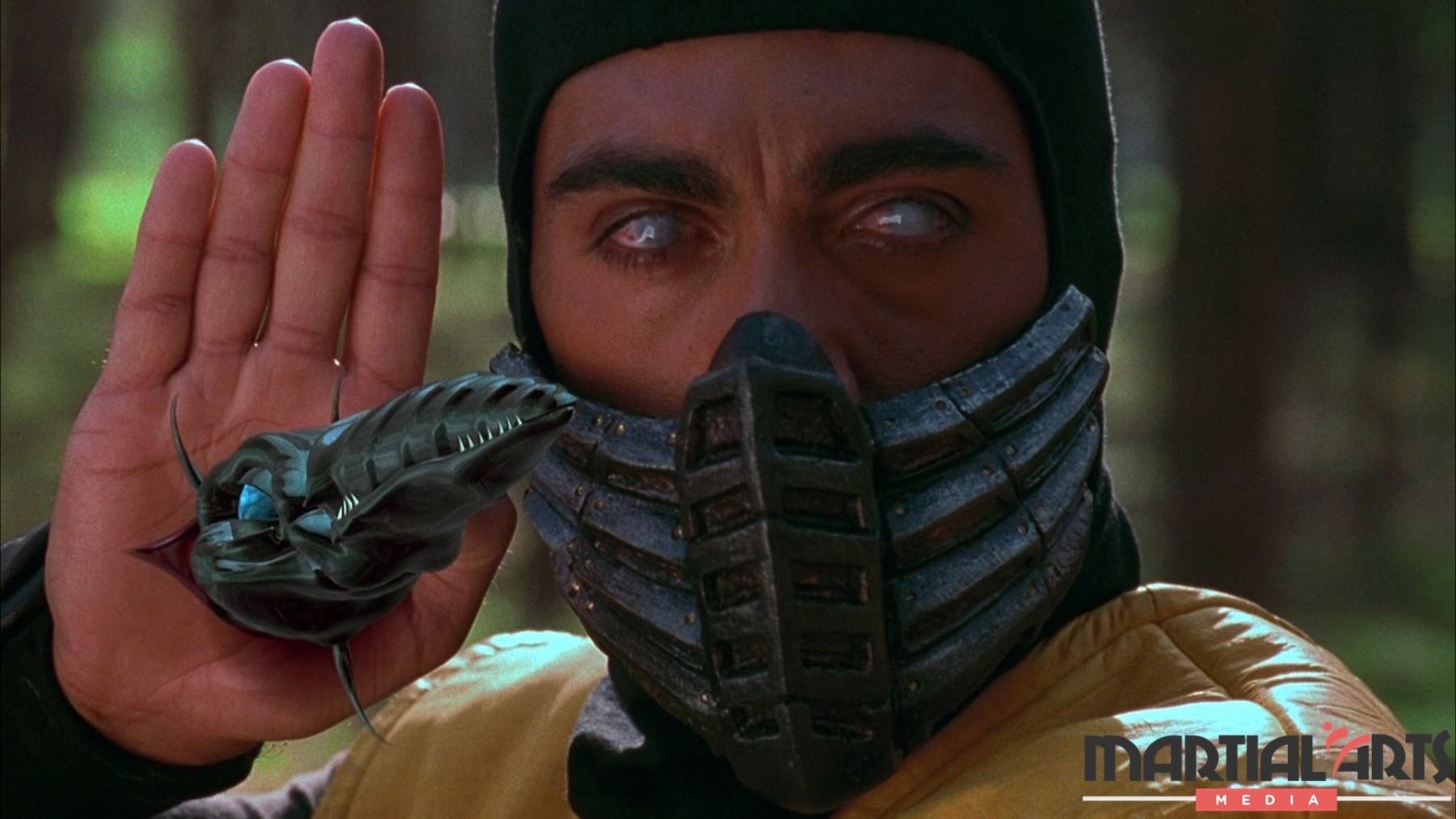
And then in the movie business, there's an old saying that it's not who you know, it's who knows you. And that really is true, because once you get your foot in the door and you establish yourself and you have a good relationship and you're not a jerk to work with, then people want to continue to work with you. You do good work, you don't complain, you make it look good, you make the stars look good and then you take those stepping stones and move up. So that's how I was able to kind of take martial arts, turn it into the competition and turn it into a movie/TV career.
GEORGE: Alright, fantastic. So, looking at that – and just relating to, perhaps for the average martial arts school owner, someone perhaps starting out, or going from one school to the next school, you feel it instilled a lot of confidence into you growing up the way you did. How do you work with people that experience the obstacles? You do the goal setting, and that's sort of where you want to go. But I guess you reach this point of, the whole “Can I,” a bit of self-doubt. How do I break out from this next barrier to the next?
CHRIS: Well, if you're talking about martial arts business owners or martial arts school owners, nowadays it is so much easier and so much simpler to become successful in the martial arts because there are guys like you. There are guys like me that are out there that weren't out there! Right? If you've been around for a while, you go back to the 80s or the 90s, everyone was closed off. “I don't want to share my knowledge with you,” everybody was very close-minded, where the martial arts in the business, at least in the United States that I've seen so far, it's become more of an open mind, where we’re trying to raise the level of our industry, right?
Our industry has had such a bad rep on the business side for so long and so few people have had the secret and the keys to success. Now more and more people are getting because there are guys like you, there are guys like me that are out there, sharing our knowledge, sharing our understanding of how this business can work and how it can be successful to raise the standard of the industry. So if there's anybody out there who's struggling: there's a wealth of free knowledge. They can follow you, they can follow me on social media: all these things that didn't exist just a decade ago, there are so many tools available, I can almost say that if you're failing in your martial arts business now, you're just dumb.
You're not paying any attention to what's out there. And I don't mean that insultingly, but there's a wealth of information out there that was never available before, just the free stuff. And of course, there's coaching, consulting, business guys and you've got to weed out some of the bad guys from the good guys, which is also hard to do and I've got a few tips on that. But in the business today, I wish I was starting out today, because the transition from good to great is much smoother and easier now, for the people that really want to go get it.
GEORGE: Definitely so. Well, let's explore that: weeding out the good from the bad. Because that's something that comes up a lot and I guess form the time in the last 5 years that I've started helping martial arts school owners, it's probably the place where I've seen the most consultants and experts that deliver information. And I guess a lot of it is based on a little success? You know, not people like yourself that has grown along the years and have seen the ups and downs and seen the different transitions. So what advice would you give to someone that's really looking for good advice, but just not sure who to trust?
CHRIS: Two tings: one, references and testimonials. Say, if somebody says, well, I've gotten these many people this many results – find out who those people are and talk to them. Send them a message on Facebook or send them an email, how has this person helped you, what has been great about this experience, right? So if somebody doesn't have social proof, then there's a big flag right there. So, if you got a sales page that says, “I helped hundreds of people get thousands of students,” but there are no actual testimonials on that page? I’d be running away from that.
Second of all, if they have a fully functional business, get a chance to take a look at it, right? We've got 12 locations, we've been around for 53 years, my main school has almost 400 active members in it, so I'm not telling you what to do because I'm guessing; I'm telling you what to do because this is exactly how I do what I do and why it works. So there's a method behind my madness, or to say, my systems have systems. So something default – there's a system to fall back on. So those are the kinds of things that you've got to look at.
GEORGE: Alright, fantastic. So Chris, a day in the life of Chris! You mentioned 13 locations?
CHRIS: 12.
GEORGE: 12 locations, OK. So what does that look like? Obviously, you can't have your hands on everything: what does that look like in a day for you to manage and operate?
CHRIS: Listen, I couldn't do this by myself. I've got a great team in place that helps us keep things running smooth, right? It's kind of like a duck: on the surface, it looks smooth, but underneath, there are these feet paddling really, really fast to keep it going in there. But yeah, you're right, there's no way I could do this by myself. I have a fantastic team in place, my dad’s core people are still involved with our company today. So they understand all the nuts and bolts of how our business is run.
So you've got to surround yourself with a good support team. So my job really, the main thing is, I train the trainers, right? My job is to make sure that the people that are going out of the schools that are managing or owning their own, individual locations are doing and saying and teaching things the right way to continue to help the business itself grow and make the students improve. So I've got a pretty cool spot right now, I'm a trainers trainer.
GEORGE: Trainers trainer. Alright, so let's break that down. So it really comes down to your leadership and the team's leadership. So where do you really start that journey of developing leaders?
CHRIS: At white belt. So right when they start, regardless of their age. Ultimately, we train and grow all of our instructors and trainers and future managers and owners in house. And they come up through our system, they come up through our ranks because again, they're the product of what we’re selling, right? So it's challenging and it we’re experimenting with bringing people in from outside of our company because I do want to open it up and expand it more, but our easiest and best growth and best managers and owners always come from the inside, we’re growing them. We call it bench strength, right? So the goal is to develop the bench strength on our team so that every person on the team is replaceable and no matter who's here and who's not here, the wheel just keeps turning and keeps moving.
GEORGE: So you start at white belt, but at what point… what would be the first steps you would take to push someone towards the leadership role?

CHRIS: It's very easy: we have a leadership program built into our program. So as they escalate and they get about halfway to the path of black belt, they're interested in that, they receive an invitation into our leadership training and then again, we’re very fortunate in the fact that we built this. We have instructor colleges, so four times a year, anybody that's interested in having a job inside of a Red Dragon School has to attend our instructor colleges. After they attend 4-6 instructor colleges, we give them a written exam, then a physical exam. And if they pass all of that, then they're certified as what we call a level 1 instructor.
So technically, any one of our Red Dragon Schools could hire them as an assistant. They work inside the school, there’s platform building all the way through. You start as an assistant instructor, then you go to a floor instructor, then a floor manager, then a head instructor and then a manager of a school. And then if you want to take that step, there are ownership possibilities for you. So it's all platform based and just like going from white belt to black belt, there are clearly defined outlined steps. The same thing on the internal, on the business side of what we do, those same steps are in place.
GEORGE: All right, great. So what obstacles do you experience with this? Because I mean, you already have 12 locations, I'm sure one to 12, there were a lot of bumps in the road. What are the general obstacles you’ve overcome – well, that you experience on a day to day basis and within yours, if not so much current? What do you experience within that whole growth phase?
CHRIS: Well, there's a couple of things. The biggest thing and my favorite saying are, everybody wants the results; nobody wants the process. Right? Everybody wants to be a black belt, but not everybody is willing to put in the work to become a black belt. Everybody says they want to be an instructor, a manager, an owner; but maybe they're not willing to put in the work, right? When they watch me do what I do, they see the glamour moment. They see me standing out there, running the class, rocking it – everything's firing on all cylinders. They don't understand sometimes how much work, effort and dedication I put into my craft to be able to do what it is that I do.
Now, there are those that are going through the path and are in process and are going through it. But that's overall my biggest challenge, to answer your question is – everybody wants results, nobody wants the process. And a lot of younger people today don't have the patience to get there, to take that next step. They think that, oh, I'm a black belt, I should start making $30-$40 an hour and be paid $100,000 a year to do this. They don't have the patience to do the work, to get better, to get the rewards.
GEORGE: Definitely so, and I guess Chris that's the way of the world today. I mean, you come from, you walked a long path to achieve your success and as easy as it’s become with access to social media and accessing information, the problem with accessing information is, it’s so much easier to see the end result that someone has achieved and you don't always recognize the journey that it’s taken and the obstacles.
CHRIS: Right.
GEORGE: And I guess that brings into this whole, instant gratification with the younger generation.
CHRIS: Right.
GEORGE: That's what they're doing, they haven't committed their 10,000 hours or whatever it is, they just want that result.
CHRIS: Right. Yeah, listen, it's the same thing. I mean, I don't know in Australia, but on YouTube, there are two brothers, Logan Paul and Jake Paul, who are just monsters on social media and social interaction, right? And they're young guys, but what you don't see is, they put in years of work to build up to their million, or two million followers, to get those 20-30 million views of these crazy, goofy videos that they do, but people are responding to it, right? So if you're doing something good that people respond to, you're going to move up. If you're doing something that's not good and people aren't responding to it, then maybe you're in the wrong line of work. Maybe you're in the wrong business. Not everyone is cut out for this type of business.
You've got to follow your passion, right? I'm doing this because I love it; you're doing what you do probably because you love it, right? You love sharing your knowledge and people respond to that passion. They feel it, they know it and they understand it and they're like, yeah, that's the guy I want to have helped me. That's the guy I want to have trained me, or train my kids because it comes from here, it comes from my heart. And you probably can't see me because this is a podcast, but I'm touching my heart. But it comes from there first and if it comes from there and it’s pure, then everything else is going to be so much easier in the end.
GEORGE: Fantastic. So, where do you start? If you're helping a school owner scale, with their operations or their marketing, what is the benchmark where you start and evolve from?
CHRIS: Well, it's called the snowflake principle. Every school owner that I coach or consult outside of my company starts somewhere different. Because everyone is different. With me, it starts with an interview process. I'll spend 30 minutes or an hour with them on the phone, talking to them about all the systems that they have or don't have in place, finding out what their biggest needs are first, whether it’s new members or keeping old members, whether it’s what you do, marketing systems, Facebook, social media interactions.
So I've got to really interview and dig down and understand the person to make sure of two things: one, I understand completely what they need and two, I believe that I can help them. Because ultimately, if I talk to somebody, I'm going, to be honest with them. Look: I can help you if we implement x,y and z, or they might be in a spot, listen, I'm not the guy for you, but I might know someone who is. Right? That's kind of where I start and my approach to it is, I need to get to know the person that I'm coaching so that I can help them reach their goals.
GEORGE: All right, great. So Chris, I feel… we’re probably sort of scratching the surface of your wealth of knowledge, and I want to talk a bit about The Main Event, what you do on the speaking platform. And this is sort of the cliche question, right? Is there a question I should be asking you and steering you towards that we’re not covering as yet?
CHRIS: No, actually what I’m gonna be covering at The Main Event that we’re coming up, that's in San Diego, is pretty much that. But what I'm going to do is, I'm going to give the school owners and the managers there actionable things that they can implement in their business to help grow their business faster with new members. So there are so many things that many school owners aren't doing, in what I call the onboarding process or their first 100 days.
A way to turn a satisfied customer into a happy customer, because here's the difference: satisfied customers don't refer members to your school; happy customers refer everyone. So it's ultimately taking a customer from a satisfied state to a happy state. The processes that we use to do it and the processes that we actually used to help over 100,000 people become happy customers inside of our business.
GEORGE: Alright, fantastic. I'm a big fan of the first 100 days, it's something I've spoken about in our Martial Arts Media Academy program as well and something we try and really practice. You know, how you can really, the first 100 days, what sort of impact you can make. If you were to break it down, just a little deeper, to what extent do you go within the first 100 days? How would you handle a student coming onboard with your program?
CHRIS: That's a great question and that's probably a whole other 30-minute conversation and really is perfect, because that's exactly what I'm going to be talking about in San Diego on April 26th to the 28th. So if there's anybody listening that wants to get there, I will go through those exact processes. I'm going to show you how to get someone to give you an awesome review instead of a crappy review. I'm going to show you how to onboard them and surprise them with things that they won't get in any other martial arts school, let alone any other business. So it's little tips and secrets like that that make all the difference between a satisfied customer and a happy customer. We’ll cover part 2 after the event – other than that, you've got to come to San Diego April 26-28th.
GEORGE: Alright, awesome. That sounds great. Because I might take you on for a second interview when I meet you in person, depending of course on the time, it's a big event and so forth. But it would be great to see you on stage and really gather some information and then perhaps we can do a part 2 and really discuss a few more topics in depth.
CHRIS: Yeah, man, I'm happy to do it. Happy to do it, always happy to help, listen if there's just one person listening to the podcast is affected in a positive way listening to this, then that's great. Obviously, I want to help hundreds and hundreds of school owners, but hey, it starts with one, right?
GEORGE: Fantastic! Before we go, Chris what's next for you in your martial arts journey?
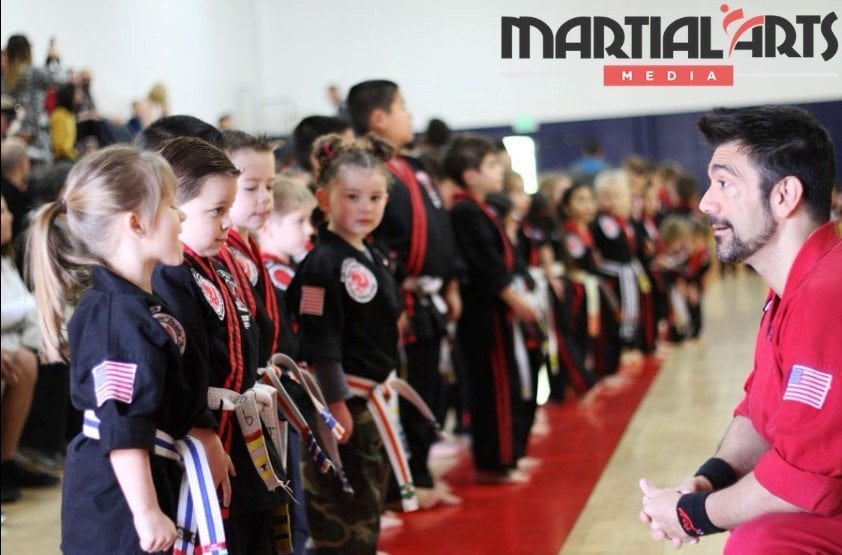
CHRIS: Next is my real – not my real, but my new mission, my passion, my purpose is… and again, I don't know how it is in Australia, but in the USA, there's a really big problem with bullying. I just wrote a book, which became a number 1 bestseller called “Bullyproof Fitness”. It’s available on Amazon worldwide I believe. But my… what I'm trying to do is, I'm trying to get a million kids bullyproof and fit by the year 2025. Right now, I'm at 50,000, so I've taught 50,000 kids so far. I go around to local martial arts schools all over the world and I do these live bully events, seminars to help these kids understand what a bully is, what it’s not and what they can do if it happens to them, because so many people don't have the tools they don't know what it is, even kids that are in martial arts don't understand.
So by doing these live events around the world, it’s allowed me to impact a lot of people, but obviously my goal is to do a million through the book and through my live tours and then, we have a license program called Bullyproof Fitness, that will be launching probably in June of this year, where schools can get this and have it and bring it in there. But the live events are great, because when I go to these martial arts schools, not only is it a win for them in the community, but I'm able to get them anywhere from 10 to 25 brand new members at that location before I walk out the door. So it’s kind of cool because the parents get a copy of my book, or they get autographed picture from the “Mortal Combat” movie, but they'll also be able to get new members into their school, which if you're in business, that's what you need to survive, these new members constantly coming in.
GEORGE: Definitely so. Fantastic Chris, I’ll link to, I'll definitely link to the book.
CHRIS: Thank you.
GEORGE: Bullyproof Fitness you mentioned?
CHRIS: Yep and the website is bullyprooffitness.com.
GEORGE: All right, great, excellent. Anything else, if anybody wants more details about you and your mission, where could they visit?
CHRIS: There's two great… first of all, I’m on all the social media platforms, so they can follow me on Instagram, Twitter, Snapchat, YouTube, Facebook – everywhere. What I’ll do George is, I'll shoot you an email with all my links, if you want to pop those in there. There are two websites, they can find me at. Of course my name, chriscasamassa.com and if they're interested in helping me coach, consult or advise them on how to grow their business, they can go to my coaching site, which is the thedojodoctors.com.
GEORGE: Excellent. Chris – been great speaking to you and look forward to meeting you in San Diego.
CHRIS: Awesome George, thank you so much for having me on this show. I really appreciate it.
There you have it – thank you, Chris. And thank you for listening to this show. If you are getting good value out of this show, we would love to hear from you! Best way to do that would be to give us an awesome thumbs up. Five-star review, you can do that through the iTunes store, if you have an iPhone you can go through the little purple app and access the show from there and give us an awesome review, we would love to hear from you. Or wherever else you're actually listening to this show, do leave us a review and tell us what you'd like to know, who you'd like us to interview. It would be awesome to hear from you and follow up on your requests.
Cool! If you need any help with your school, if you need any help filling your classes, marketing, digital marketing, help with your website – that's the kind of thing that we thrive on, is the marketing and helping school owners with online lead generation, in a very leveraged way. And we do that predominantly through our martial arts media academy, where we are a community of martial artists who work together on cutting-edge technology and help you grow and scale your martial arts school through the power of the internet. Isn't that cool?
All right, cool – if you need any help, martialartsmedia.com, get in touch with us, send us a message. You can also check out martialartsmedia.academy and we’ll be happy to help you take your school to the next level.
Awesome – I have a few great interviews lined up and we’ll be in touch when they get released. Have a great week – speak soon!
*Need help growing your martial arts school? Learn More Here.
Enjoyed the show? Get more martial arts business tips when you subscribe on iTunes for iPhone or Stitcher Radio for Android devices.


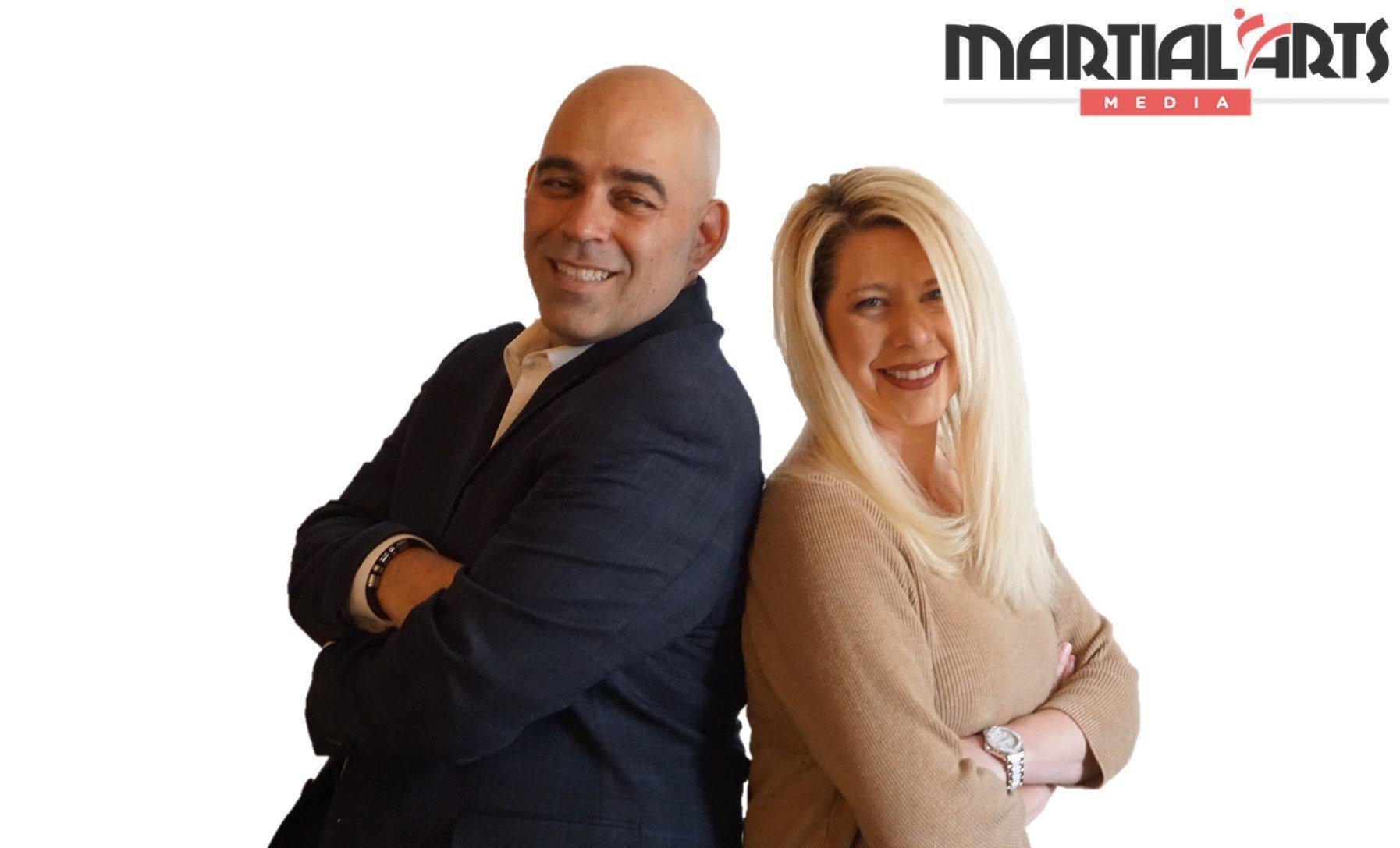
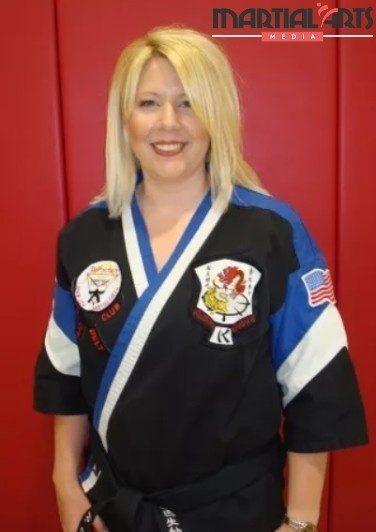
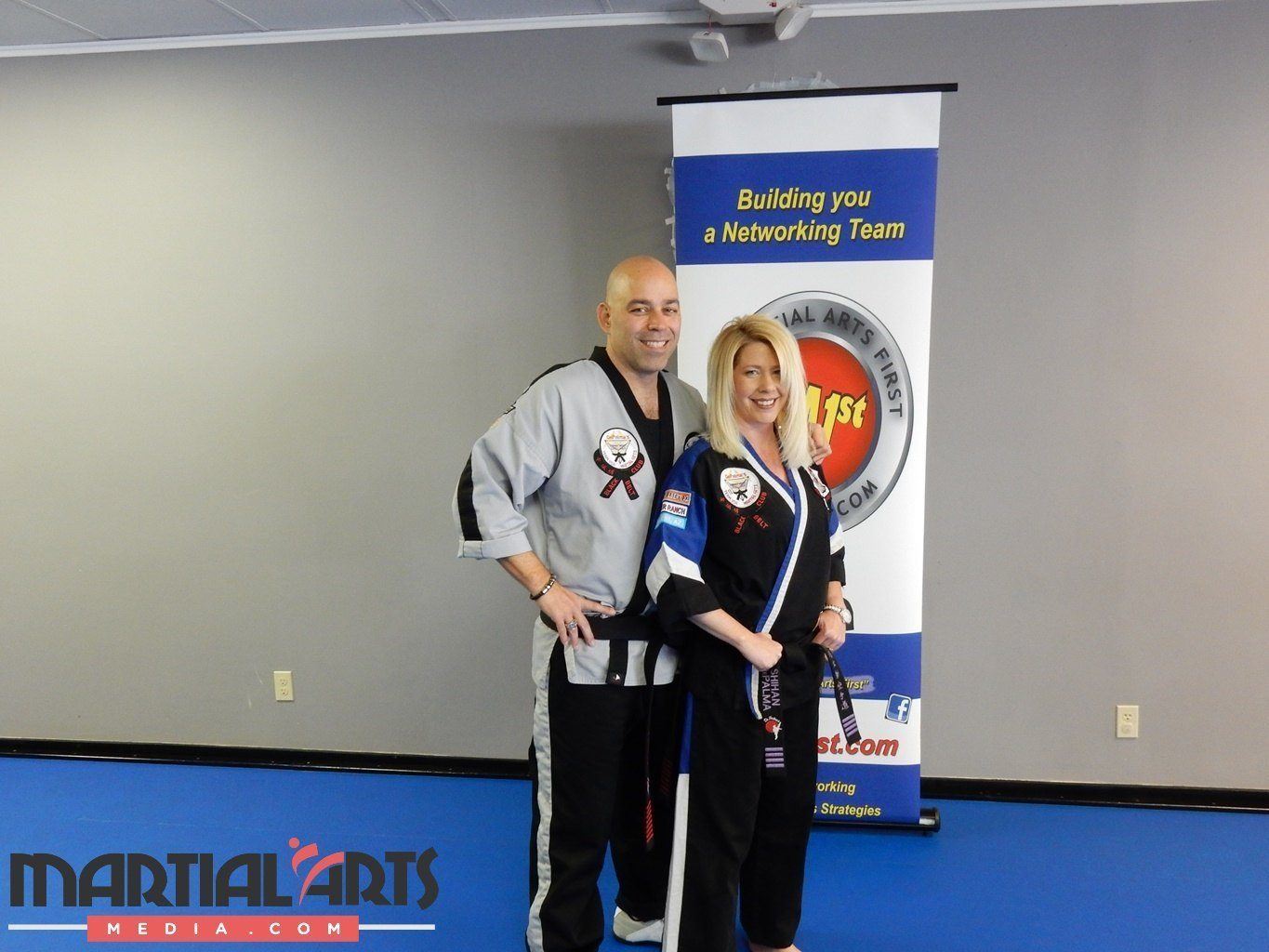
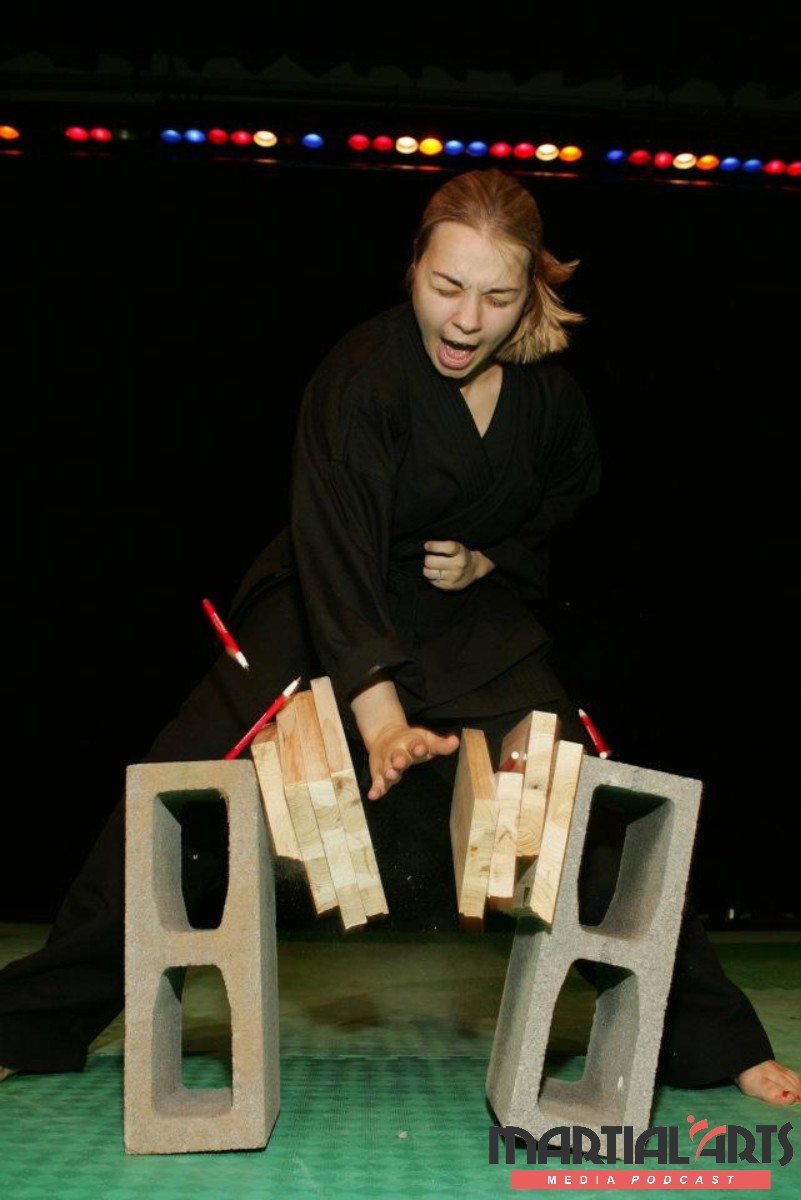
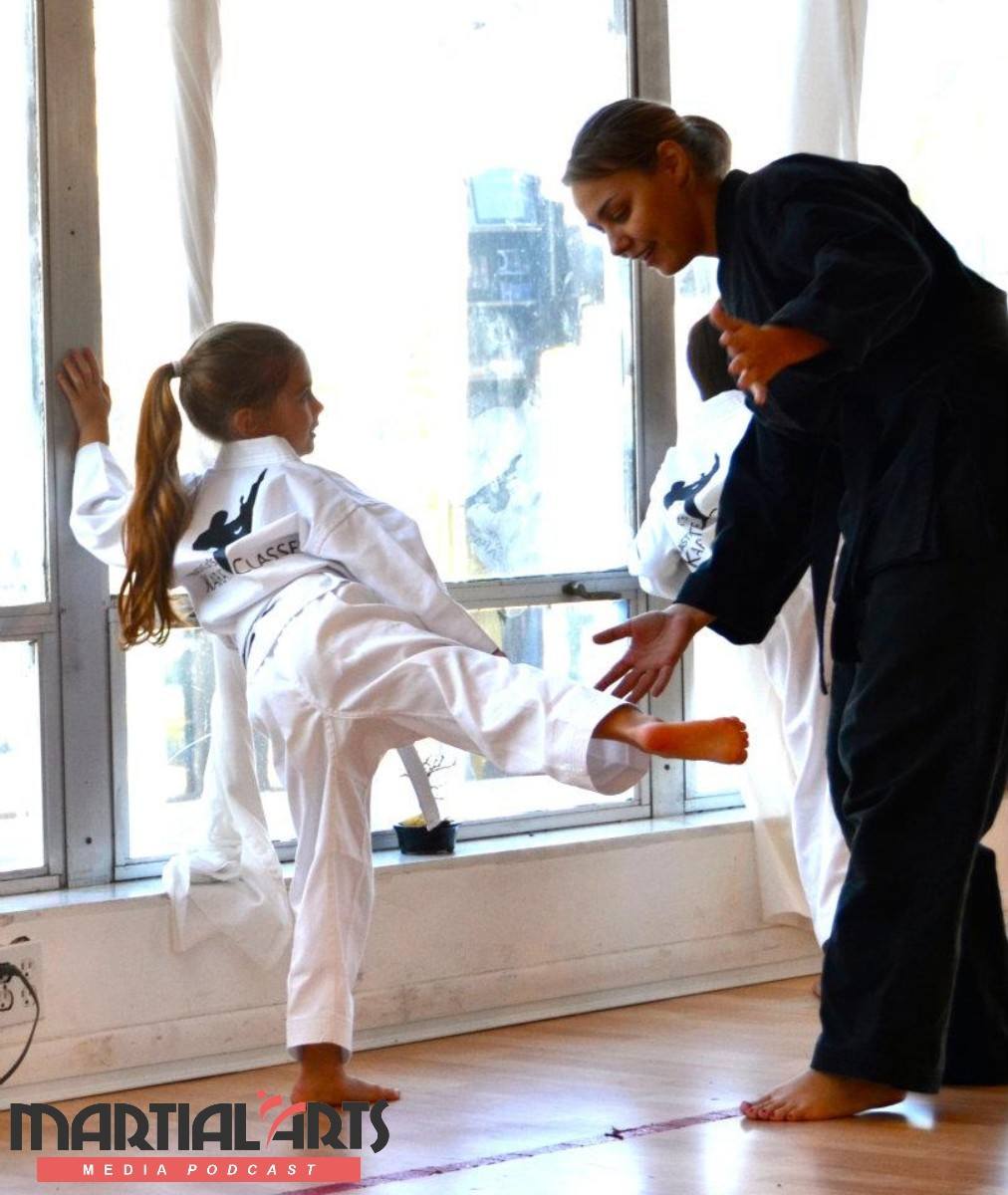 And a lot of it just comes down to listening and most of it is that the processes and the things that we use really come down to just communication. You know, so often, we’ll hear a parent wants to pull their kid out and typically, not listening to the reasons that they say at that point is the reason why so many people don't return back to martial arts. I was always in the unique position, because I've had so many former students come back to the training after three months, after six months, after six years, after breaks or periods of time that they wanted to return back and it's because I never stopped treating them as a member, even after they weren't there. So we continually kept in contact or connection or random phone calls here or there out of the blue, where I wasn't doing anything more than just being like, hey what's going on? Missed you, how have you been? You know, or getting to be able to keep that contact going.
And a lot of it just comes down to listening and most of it is that the processes and the things that we use really come down to just communication. You know, so often, we’ll hear a parent wants to pull their kid out and typically, not listening to the reasons that they say at that point is the reason why so many people don't return back to martial arts. I was always in the unique position, because I've had so many former students come back to the training after three months, after six months, after six years, after breaks or periods of time that they wanted to return back and it's because I never stopped treating them as a member, even after they weren't there. So we continually kept in contact or connection or random phone calls here or there out of the blue, where I wasn't doing anything more than just being like, hey what's going on? Missed you, how have you been? You know, or getting to be able to keep that contact going. As far as communication, I believe with training, if they're able to get up in front of a group and be a martial arts instructor, they can just as easily be the martial arts instructor to the parents in the lobby and build those relationships the same way. When there's a disconnect is that they think that the parents are no longer their students too.
As far as communication, I believe with training, if they're able to get up in front of a group and be a martial arts instructor, they can just as easily be the martial arts instructor to the parents in the lobby and build those relationships the same way. When there's a disconnect is that they think that the parents are no longer their students too.  You've got to show that you care, you've got to recognize that, oh – this person actually does have my best interest in mind. And if you can convey that, you're not going to have a problem then when that parent has a situation they want to… or like you've mentioned: when you drop the ball. I ordered you the wrong size belt, I got you your belt, but unfortunately, it came in 5 sizes too big and all this. Well have another one for you in the next 4 or 5 days, but here – use this one for now. They're going to overlook those kinds of things. It's definitely in our benefit as martial arts school owners and operators to make sure that we get to know our people and connect with them and recognize when these things happen. Because customer service is too late, that's overcoming objections and that's like, it's such a buzzword. It's such a sad way of trying to build things around something that's already gone, so see it before it happens, you've got to catch it before it happens.
You've got to show that you care, you've got to recognize that, oh – this person actually does have my best interest in mind. And if you can convey that, you're not going to have a problem then when that parent has a situation they want to… or like you've mentioned: when you drop the ball. I ordered you the wrong size belt, I got you your belt, but unfortunately, it came in 5 sizes too big and all this. Well have another one for you in the next 4 or 5 days, but here – use this one for now. They're going to overlook those kinds of things. It's definitely in our benefit as martial arts school owners and operators to make sure that we get to know our people and connect with them and recognize when these things happen. Because customer service is too late, that's overcoming objections and that's like, it's such a buzzword. It's such a sad way of trying to build things around something that's already gone, so see it before it happens, you've got to catch it before it happens.

